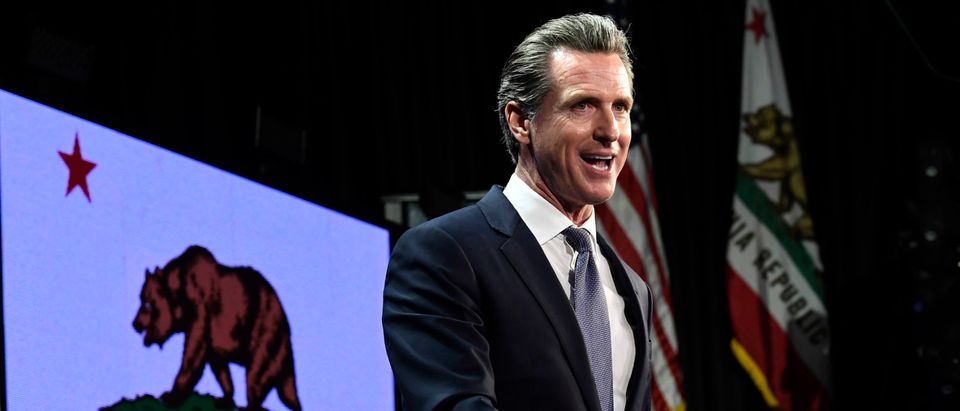Government responses to the COVID-19 pandemic have tested the limits of emergency powers, and tempted executives to see what they can get away with under the guise of defending public health.
The latest case comes from California. On April 15, Governor Gavin Newsom announced the “Disaster Relief Assistance for Immigrants Project,” which will provide cash benefits to illegal aliens who otherwise are ineligible for state or federal insurance or other benefits due to their unlawful presence in the United States. The initiative would hand out $79.8 million to illegal aliens and cost an estimated additional $4.8 million to administer. The program plans to provide one-time cash payments of $500 per adult/$1,000 per household to the 150,000 illegal immigrants in California. U.S. citizens are eligible for these benefits.
Under U.S. law, illegal aliens are for the most part ineligible for state or local public benefits, unless state legislatures act explicitly to provide them. Newsom stood up the initiative, also known as the “Disaster Relief Fund,” without state legislative approval. That spurred Judicial Watch to file for a Temporary Restraining Order in the Superior Court of California, County of Los Angeles, on behalf of two California taxpayers, Robin Crest and Howard Myers, asking the court to suspend the program.
Though the court found that Judicial Watch was likely to succeed on the merits (that Governor Newsom had no independent authority under law to spend the money), the court found that there was a public interest in sending tax money to illegal aliens during the coronavirus crisis. Judicial Watch is appealing the court’s manifest error.
In another act of executive excess, Newsom approved a deal with Chinese company BYD (“Build Your Dreams”) to deliver 150 million respirator masks and 50 million surgical masks per month to the state. BYD, which chiefly manufactures transportation equipment, has been criticized for securing no-bid insider contracts and delivering shoddy equipment. The 2019 National Defense Authorization Act banned the federal government from buying electric buses from BYD, and the ban will apply nationwide by 2022.
However, the FDA had given BYD emergency authorization to produce N95-grade masks for the U.S. market, even after concerns over quality control. Newsom jumped on the opportunity to make what he called a “big bold bet” to secure the Chinese masks.
This move received pushback from the state Senate budget committee chair Sen. Holly J. Mitchell, who criticized the lack of transparency in the transaction. Congressman John Garamendi, a California Democrat and frequent critic of BYD, more bluntly asked, “What the hell? What is our government doing?”
Meanwhile, the California Republican Party sued Newsom to prevent ballot harvesting in the upcoming May 12 special elections in State Senate District 28 and, more notably, Congressional District 25. This was the seat occupied by former Democratic Rep. Katie Hill, who was forced to resign after controversial photos and texts emerged showing sexual relationships with members of her staff. California election law allows those who vote by mail to designate any person to return the ballot to the elections official who issued it. The state GOP argues that the ballot harvesters themselves would be violating the state’s “stay at home” order and would both be placing themselves at risk as well as becoming vectors for the spread of the disease. This is especially troubling since nursing homes and care facilities are frequent centers for collecting ballots.
This comes in the context of a push by Democrats to force a nationwide mail-in 2020 presidential election, using the virus pandemic as a pretext. But this would significantly raise the risk of vote fraud and place the legitimacy of narrow outcomes in significant doubt. A recent study found that 21 percent of requested absentee ballots were not counted in the 2008 election, underscoring another problem in embracing this untrustworthy voting method.
The response to COVID-19 has led to unprecedented government actions, but not all of them are valid. A public health crisis does not suspend the Constitution, nor give municipal, state and federal officials dictatorial powers. That’s the greatest lesson of the pandemic.
Chris Farrell is director of investigations and research for Judicial Watch, a nonprofit government watchdog. He is a former military intelligence officer.


